Dishwasher Tees
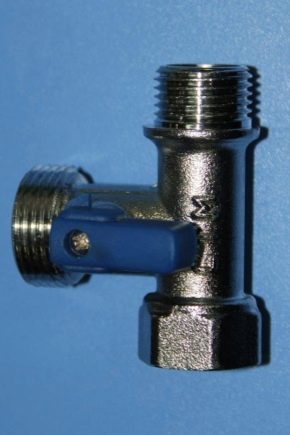
Dishwasher tees are very popular and relevant. All owners of such equipment need to deal with tee taps for connecting the dishwasher to the water supply and sewerage system. It is also worth familiarizing yourself with the types of plumbing tees.
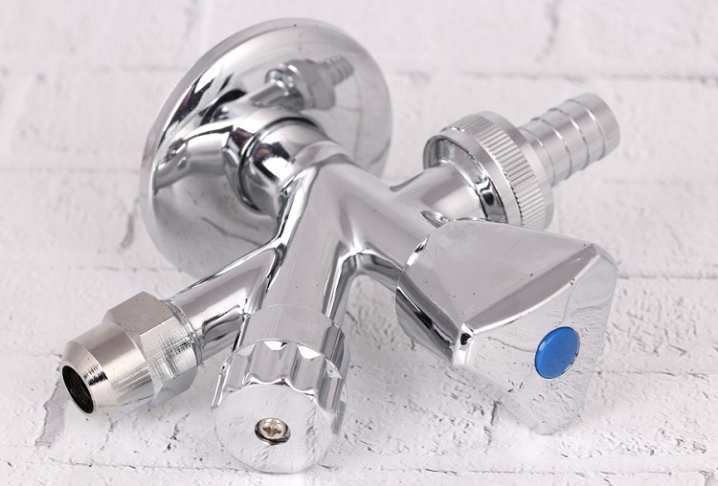
Description and purpose
Dishwashers from the attribute of "pretentious cottages" are gradually turning into equipment for most dwellings. Therefore, all accessories and auxiliary elements for working with them also deserve attention. The dishwasher tee can be used along with 3 other options:
-
corner crane;
-
double (there are 2 branches);
-
4-branch model.
But only 2% of consumers are dissatisfied with the qualities of plumbing tees. This is a fairly simple and comfortable solution. Thanks to the standardized thread, the connection to both taps and mixers is greatly simplified. Another threaded contour has a slightly coarser thread.
It is this combination that is optimal for connecting communications.
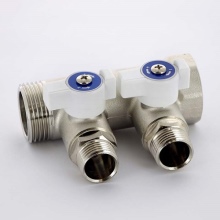
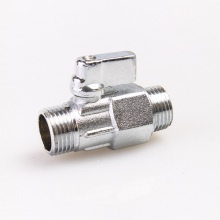
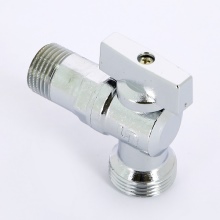
Species overview
For connection to the water supply and to the sewage system, a tee tap is ideal. However, this does not mean that each of its samples is ideal in a particular case. Only correctly selected modifications will be comfortable and reliable enough to use. First of all, the plumbing water tee differs in material. For its manufacture, use:
-
common ferrous metal;
-
stainless alloy;
-
copper;
-
brass;
-
special grades of plastic.
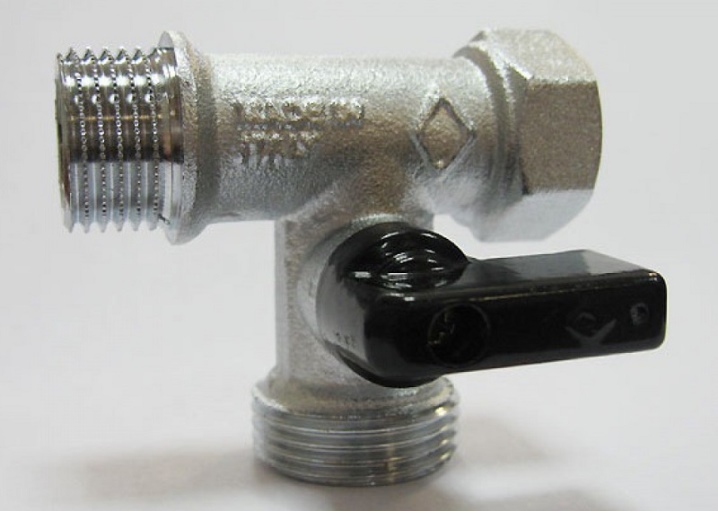
Black steel is the least practical option. It quickly deteriorates in adverse conditions, and connection to a dishwasher cannot be called a stable solution. But stainless steel structures are much more attractive. Their resistance to aggressive influences is so great that exactly the same models are used in the chemical industry. Without any doubt, you can take such tees to drain water from the dishwasher into the sewer: there can be no fears.
Brass and copper are even more reliable than regular steel. But they are also more expensive, so this option should be considered last.
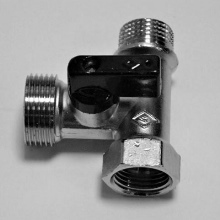
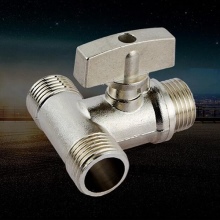
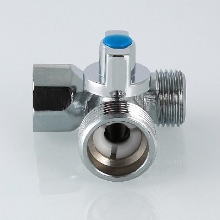
In terms of value for money, the best option for a valve for water and drain pipes is a plastic structure. However, the problem is often the low mechanical strength of such a product. It is worth considering the compatibility with different pipe materials.
Metal models are found much more often than polymer counterparts. For their manufacture, both stamping and welding can be used. Some examples are produced by combining both of these technological processes.
Fastening can be done on a coupling, on a flange or by means of a thread.
The welded joint is used extremely rarely, because the dishwasher is clearly not the unit where it is justified.
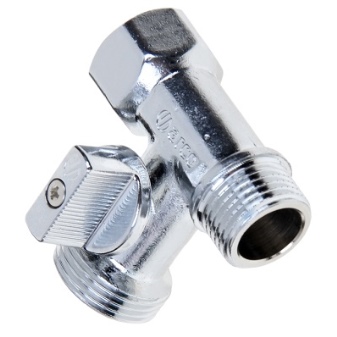
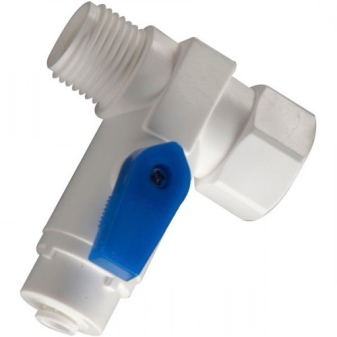
Also tees can be equal (with 3 identical holes). They successfully join pipes of various cross-sections. The throats are set at a 90 degree angle to the body. Transitional models allow not only to connect communications of different sections, but also to change the pressure in the system. They are additionally divided into 3 subtypes:
-
equipped with a crimp nut and a press sleeve;
-
complete with crimp nut and threaded end;
-
with mount.
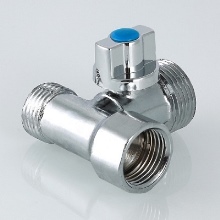
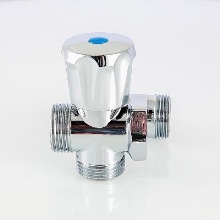
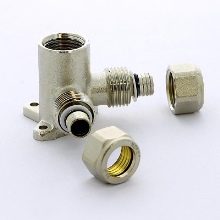
The diameter of the tees can be:
-
11;
-
16;
-
20;
-
25;
-
31.5 cm.
There are tees designed for 45, 87 or 90 degrees. They combine structures with different sections.If possible, you should use more durable brass and bronze tees instead of plastic ones. When selecting a product, it is necessary to take into account the condition of the thread.
A valve with a ball filling is more reliable than a lever-type valve.
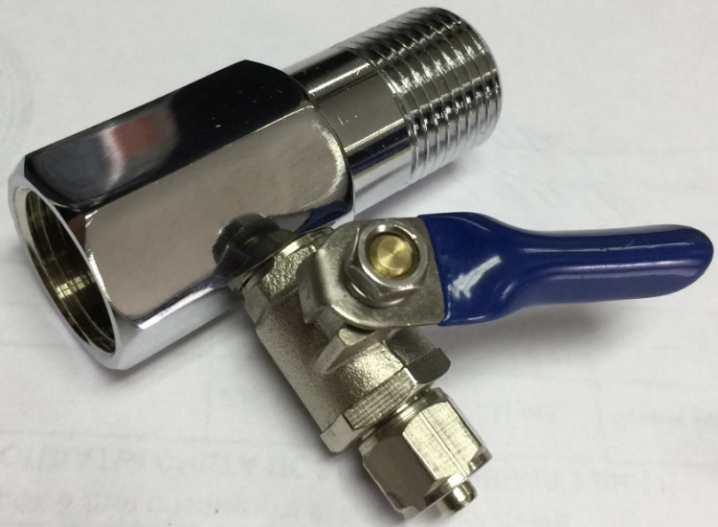
How to use?
The specific application of such products should also be carefully disassembled. The inlet hose to the tee must be connected freely, without "interference". A hose that is too short will have to be replaced. For work, you will definitely need fum tape - it is better and more reliable than sanitary flax or tow. Basically, the dishwasher is connected to the tap through the mixer taps.
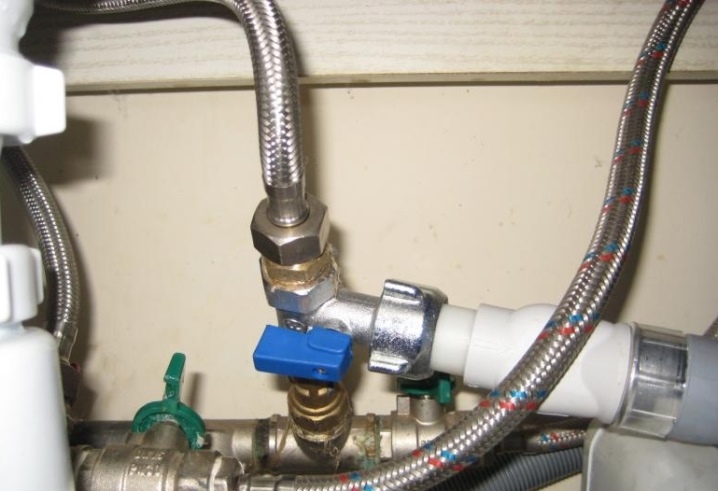
The usual scheme:
-
shut-off of the inlet valve;
-
disconnecting the mixer supply with a wrench;
-
replacement of an outdated sealant;
-
new thread rewinding;
-
winding the tee;
-
connecting the mixer to one of the outlets;
-
installation on a different outlet of the duct filter;
-
connection to the outlet of the filter of the hose filling the dishwasher.
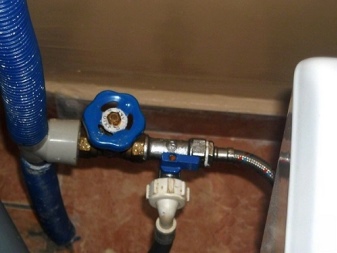
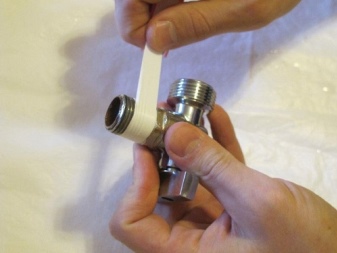
The other end of the hose must be connected to the machine body. The plastic nut is sealed from the inside. You should not rewind it if it is in good working order. When using hoses with the Aquastop unit, you need to watch how they will be located. The body of such products is often large and can hardly fit in the gap separating the PMM from the wall.
It is very important to achieve a tight connection. The valve gate must be closed. After that, the water supply is opened. If leaks are found during inspection, the nuts must be tightened.
It is highly recommended to use good-quality components and parts - then, taking into account the advice above, you will be able to do everything efficiently.
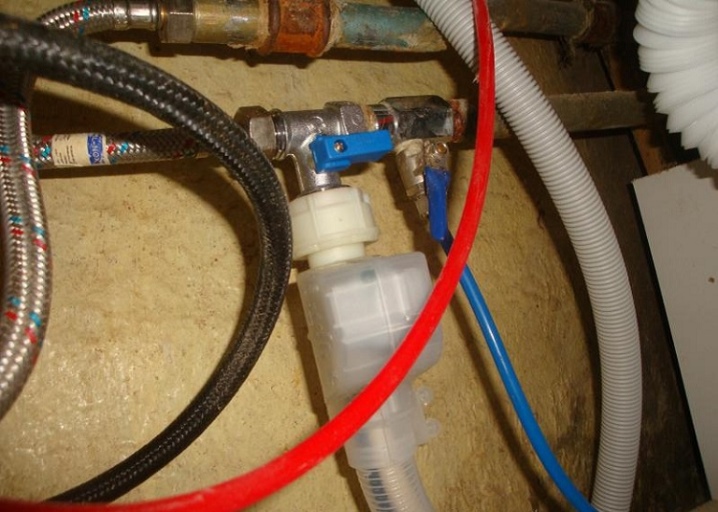













The comment was sent successfully.